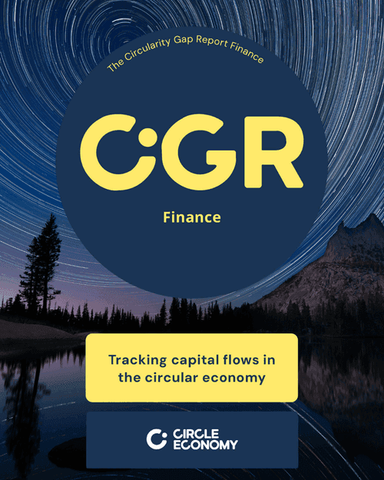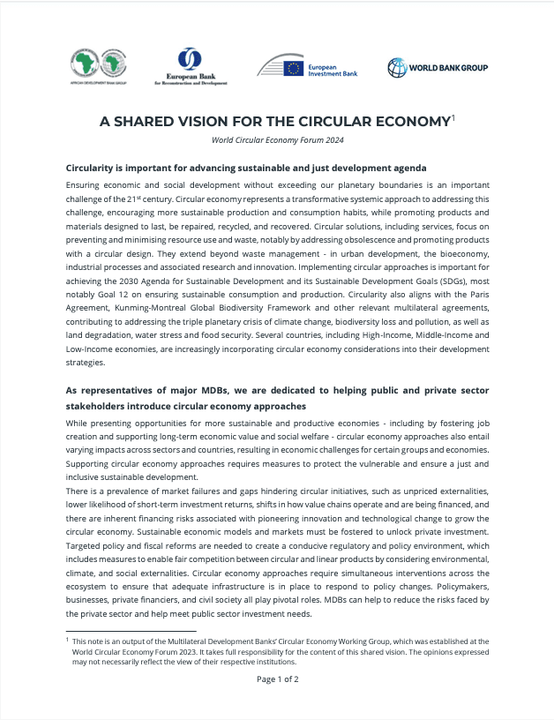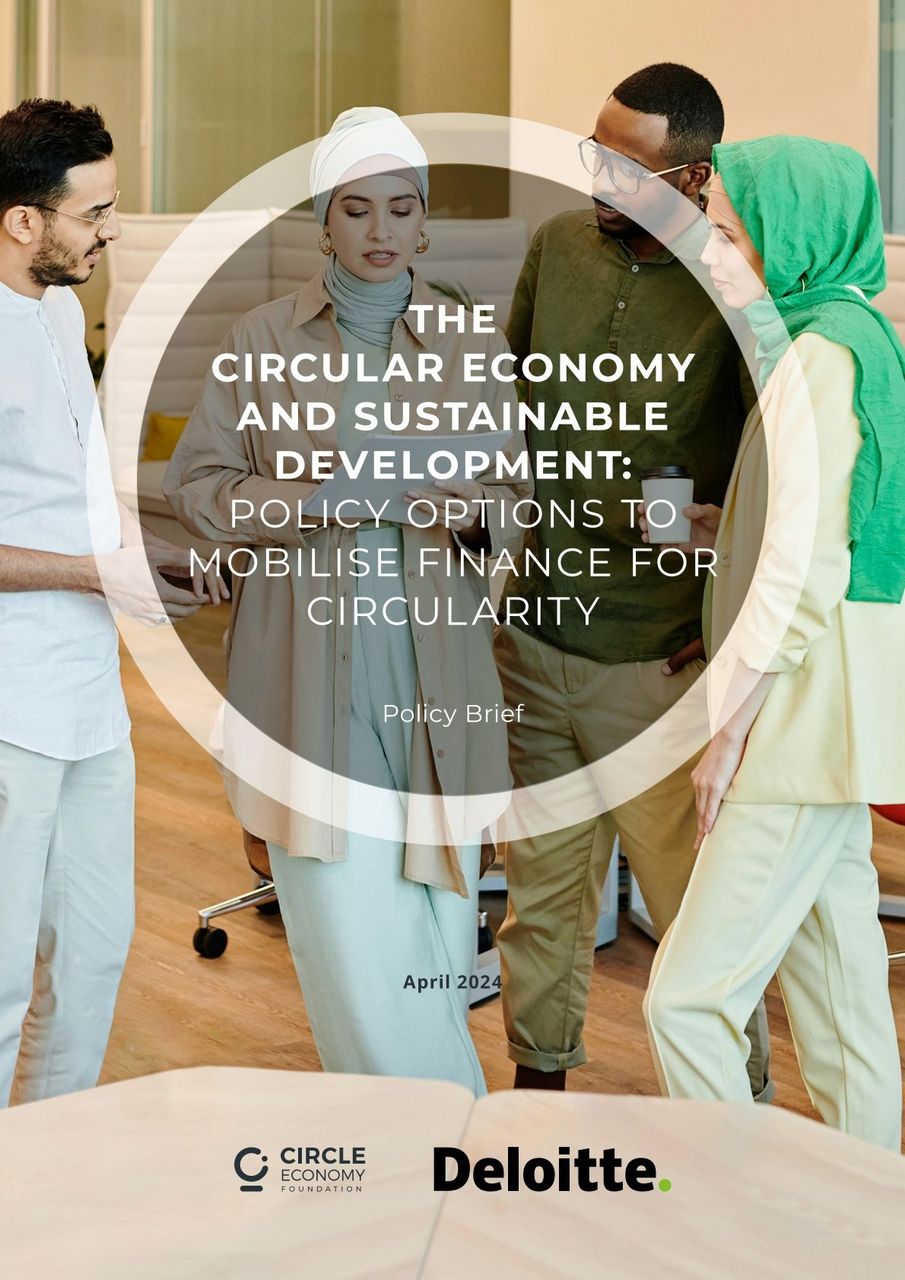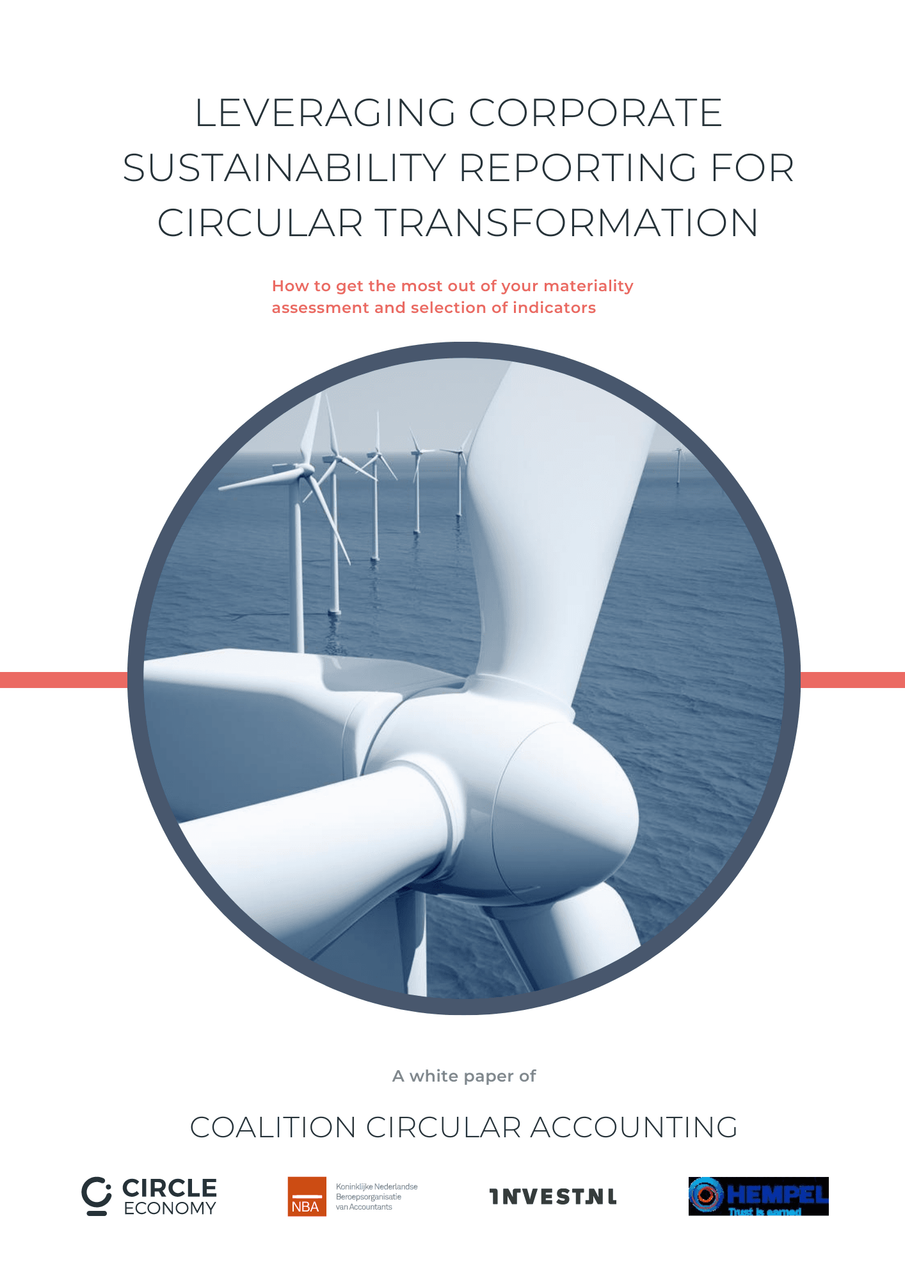Finance
Circle Economy’s Finance Programme mobilises the finance sector to fund circular solutions by removing systemic barriers and engaging stakeholders to enable a just, scalable transition.
Our vision
Finance is essential to scaling the circular economy, but a lack of standards and shared understanding makes it difficult to match capital with high-potential projects. The result is a fragmented landscape where investors struggle to assess opportunities and circular businesses face barriers to funding.
Circle Economy’s Finance Programme tackles this gap through collaborative, knowledge-driven projects that promote alignment, improve capital allocation, and unlock the financial sector’s full potential to accelerate a just circular transition.

What we do
We work with financial institutions, circular enterprises, policymakers, accountants, and legal experts—locally and globally—to advance sustainable finance. Through research, expertise, and collaboration, we help unlock capital and scale the circular economy globally.
Strengthen circular economy integration in finance
Increase recognition of the circular economy as a valuable strategy for financial institutions to achieve sustainability goals while equipping the sector with the expertise to identify, understand, and assess effective circular economy initiatives.
Enable access to capital for circular businesses
Help businesses access funding for circular economy projects by addressing financing, reporting, and accounting challenges that arise when operating circular models in a largely linear system.
Our highlights
The Circularity Gap Report (CGR®) Finance
The CGR Finance offers a global overview of known investments in businesses engaging with the circular economy over the six-year period between 2018 and 2023. By creating a clear snapshot of circular economy investment volumes, it aims to improve circular economy financial reporting, support impactful capital allocations to the circular economy and inform impactful investment decisions.
The Circular Indicators Library
In 2024, the Circular Economy Indicators Coalition (CEIC) launched an online Circular Indicators Library on Circle Economy’s Knowledge Hub. The library consists of a curated collection of circular economy indicators that financiers can employ to track the circular performance of their investments.
MDB’s shared vision for the circular economy
At WCEF 2024, a shared vision for the circular economy was presented by AfDB, EBRD, EIB, and the World Bank Group—facilitated by Circle Economy and the Circularity Exchange Network—to support circular development through cross-sector expertise, technical assistance, and collaboration with public and private stakeholders.
Our initiatives
Circularity Exchange Network
The network, commissioned by the Dutch government and developed by Circle Economy, hosts content specialists from: the Ellen MacArthur Foundation, Chatham House, UNEP-FI, and the Dutch Ministry of Infrastructure and Water Management, alongside technical representatives of major international financial institutions and private banks (acting in their own capacity), all of whom work directly on the circular economy strategy of their respective institutions.
Coalition Circular Accounting
The Netherlands Institute of Chartered Accountants (NBA) and Circle Economy founded the Coalition Circular Accounting (CCA) to identify and overcome accounting related challenges that hinder the transition to the circular economy. The Coalition Circular Accounting is a diverse group of experts and scientists in the fields of finance, accounting and law.
Circular Economy Indicators Coalition
The Platform for Accelerating the Circular Economy (PACE) and Circle Economy have established the Circular Economy Indicators Coalition (CEIC) to drive harmonization and increased application of circular indicators.
Circular Economy Working Group
The financial sector as driver of the circular economy; that is the objective of the Circular Economy Working Group. The working group proposes four concrete actions to address bottlenecks in the financing of circular businesses and projects.







